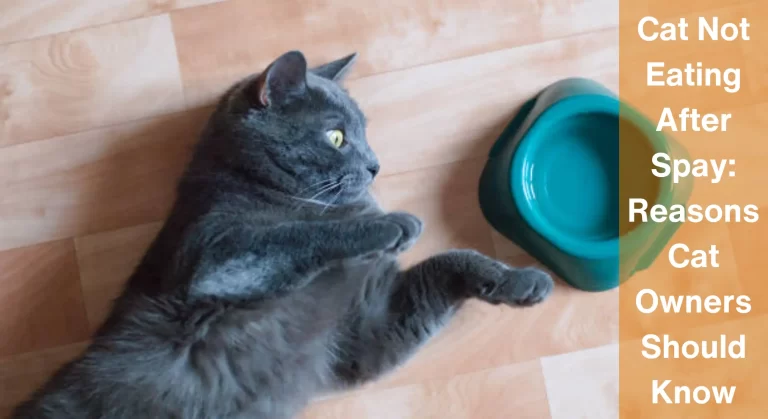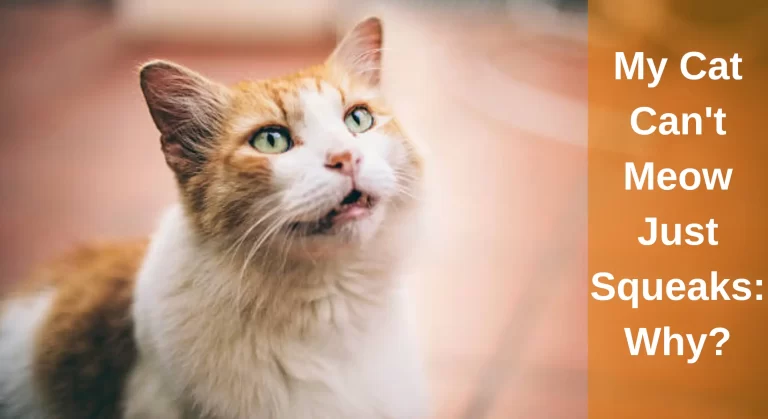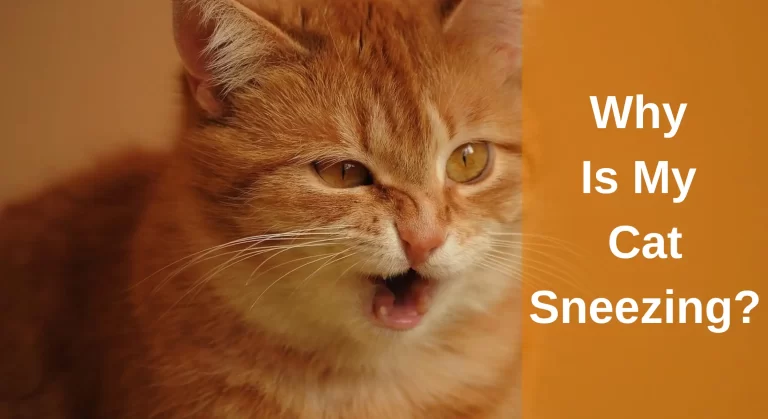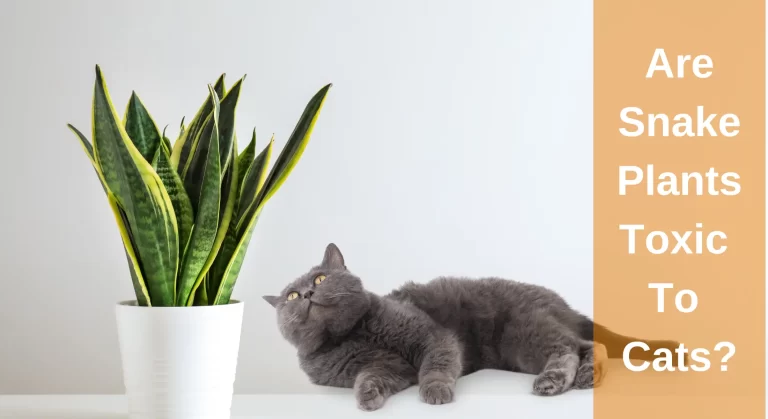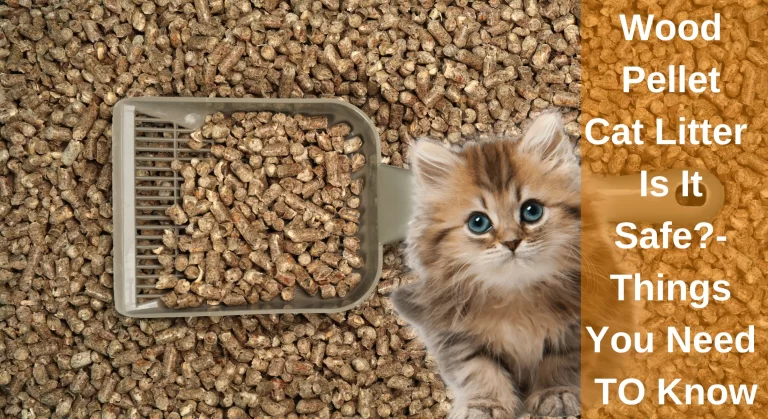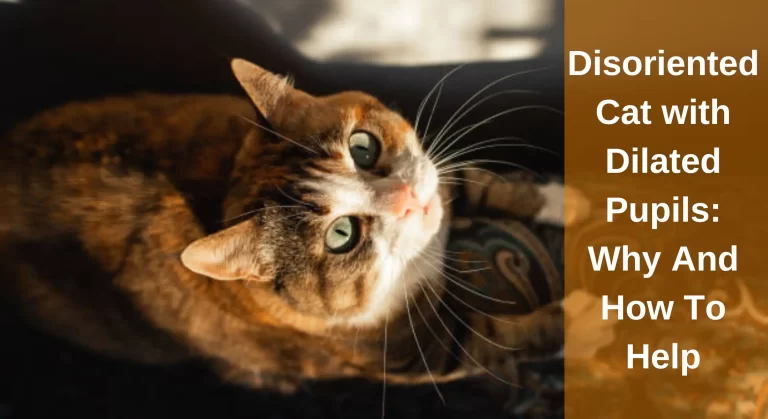Why Is My Cat Drooling But Acting Normal? What’s Happening
A cat’s behaviour can occasionally be challenging to determine whether it’s normal. As cat owners, we can become concerned when our cats start drooling excessively. Cat drooling is not normal behaviour, but something is usually wrong if your cat is drooling a lot. Drooling a lot usually indicates a medical problem.
The drool of cats is not like the drool of dogs. Instead of long, wispy wisps of saliva, you may see a tiny droplet dotting the area below your cat’s mouth.
It’s common for cats to drool while kneading or purring. When your cat is stressed out or terrified, you can see saliva or spit bubbles on the side of its mouth. However, health problems, including exposure to chemicals, dental issues, or oral traumas, can also cause cats to drool.
Here are the top why reasons for cat drooling but acting normal and what you can do to prevent it. Read on so you can determine the cause by evaluating the case, getting to know your cat, and, if necessary, speaking with your veterinarian.
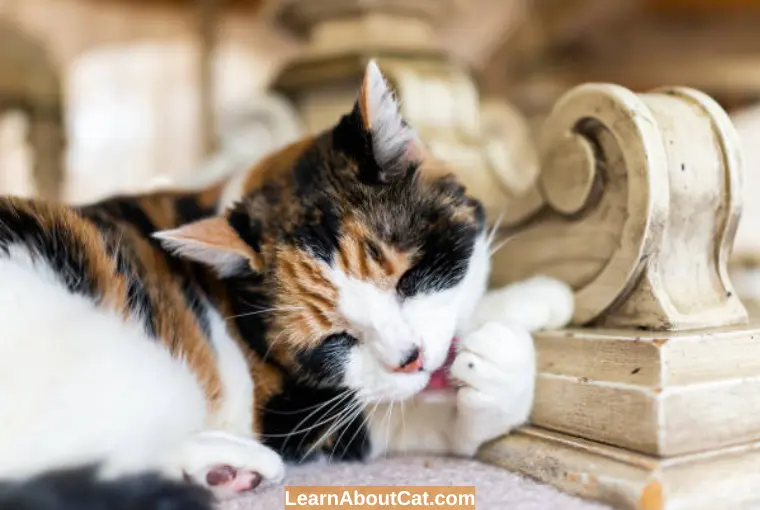
Cat Drooling But Acting Normal (Abnormal Reasons)
A medical issue is likely to be the reason if there are additional symptoms in addition to excessive drooling. Although these disorders can occasionally be related to the mouth, they can also be signs of internal problems.
The following disorders and conditions, along with cues to when you should take your cat to the vet, may be causing your cat to dribble excessively.
1. Illness or Nauseous
If your cat is sick, it may be another cause of their drooling. This is similar to how car-sick cats sometimes drool excessively because they are terrified of throwing up.
Your cat may feel sick because she ate something disgusting, overate for dinner, or had a hairball. The most significant risk of severe vomiting in these conditions might cause your cat to become critically dehydrated.
2. Oral injury
Your cat’s drooling might also be brought on by a mouth injury. There are several possible scenarios in which your cat’s mouth may have been hurt. Your cat may have engaged in catfighting or bitten anything sharp. They may have gotten oral burns from chewing on electrical lines in your home.
The issue with oral injuries is that sometimes they go undetected when you only glance at your cat. Drooling, however, is among the most prevalent symptoms.
3. Virulent Upper Respiratory Infections
This is a typical illness that affects cats, similar to the common cold in people, but if left untreated, it might get worse. Infections can damage the upper respiratory system, which includes the sinuses, nose, and throat, as opposed to the lungs. Oral ulcers and upper respiratory infections usually coincide, which is the source of the drooling. They may make it difficult for your cat to close its jaws, and the discomfort they cause will make them worse.
4. Dental problems
The most common and problematic reason for your cat’s sudden drooling is dental issues and other oral conditions. 85% of senior cats have dental problems, making them highly common. Gum disease is typically the consequence of plaque accumulation throughout their lifespan, which frequently causes this.
When gingivitis, the early stage of gum disease, occurs, the gums enlarge and become inflamed. The ligaments and tissue lining the teeth become more fragile as the disease progresses to periodontitis. Both of these might cause sudden mouth drooling by irritating the mouth.
5. Toxicology or Poisoning
It’s also conceivable that your cat is drooling from ingesting something harmful. Cats are curious creatures who often probe their surroundings with their tongues and noses.
Many indoor cat owners, meanwhile, occasionally discount poisoning too quickly. Unexpectedly, many everyday items that are safe for us might be harmful to cats. The chemicals such as saponins and calcium oxalate are found in common household plants like snake plants or ZZ plants.
6. Warm Strokes or Dehydration
Another probable reason a cat can suddenly start drooling is heatstroke. The signs that your cat is hot are decreased activity and sitting in a cool area of your home. Since saliva from their coats evaporates and provides a cooling effect, they will also groom themselves obsessively, much like sweating does for us.
Check Out: What Temperature Do Cats Like?
Normal Reasons For Cat To Drooling
There is always hope, even if drooling in cats is not a usual physiological response and typically indicates a medical problem. A little dribble in this situation is inconsequential.
The most common reasons for your cat’s sudden drooling are as follows:
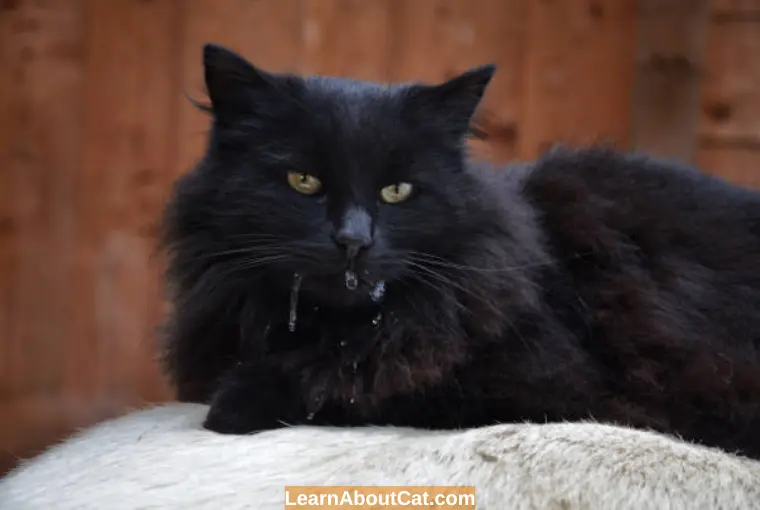
1. Worried or Stressed
A few highly stressful circumstances are trips to the veterinarian, loud noises like those from a home party or fireworks on bonfire night, and car rides. Drooling caused by stress in cats often only lasts a short while. When the stressful scenario is over, they should immediately cease dribbling.
There are further indications that a cat is stressed out that you may look out for. They may be vocalising more frequently than usual and acting more timidly or fiercely. Similar to how anxiety or stress may lead to panic attacks in humans, cats often breathe through their lips when distressed or nervous.
2. Dental Problems
The vet can take your cat’s teeth if they are infected with gum disease or have broken teeth. When this happens, keeping their teeth may be uncomfortable and require extraction. How fast your cat recovers after a tooth extraction depends on its overall health and the number of teeth that need to be pulled.
If you see your cat drooling after having a tooth extracted, their new, uneven dental development is likely making it difficult for them to keep their saliva in their mouth. Your cat may have trouble sealing its lips during the first few days after that, which would account for why they appear to leak more frequently than usual.
For your cat’s safety, take it to the vet for a check-up. Your vet will be able to determine whether your cat’s gums are healing properly and will prescribe treatments or medications if necessary.
3. Yummy Food
If your cat is drooling but acting normally, it may have eaten something particularly yummy. Animals’ salivary glands can react similarly to humans to delicious food.
Drooling at eating is not a typical physiological response in cats. Salivating in anticipation of a tasty meal may occasionally happen. Still, if your cat is frequently drooling, it may be wise to see a veterinarian be sure it is not being brought on by something else.
4. Teething
Another symptom of a teething kitten is drooling. This is yet another explanation that is quite logical and shouldn’t create any concerns. When their new teeth develop, your kitten’s gums will become more sensitive, and salivation is a typical response to dental discomfort.
Your cat’s age should make it easy to tell whether it is teething. Their baby teeth will start to sprout at around two and four weeks old and continue to do so for the following month.
5. Happy And Relax
Cats drool when they are content and happy because they are still kittens. When they are nursing from their mother, young kittens brush their paws over their teeth to stimulate the milk flow. They’ll start to drool in anticipation of a meal.
Also, Check Out: Why Is My Cat Drooling When Purring?
6. Travelling
The majority of people concur that travel is one of the significant sources of stress for cats. Cats may also have motion sickness, which makes their excessive drooling worse. If you have a cat who hates travelling to the point of madness, try taking them on as few trips as possible. Of course, there are times when travelling is necessary, such as when you need to take your pet to the groomer or the vet. Try to find a doctor or groomer close by to minimise your cat’s time in the car under these conditions.
Also Read: Why Do Cats Pant in Car?
7. Side Effects of Medication
It’s also possible that your cat’s oral medication has side effects that make them drool. The most frequent culprits are certain antibiotics and painkillers. Most of these drugs have a sour taste that cats hate. They could attempt to avoid eating it and rinse the bad taste out of their mouths, which could make them gag, foam at the lips, and drool. Unfortunately, when you give your cat medicine, it’s not just for fun; there is a reason for it and a medical condition you are trying to treat.
Frequently Asked Questions
Is drooling in cats common?
Cats’ drooling may be seen as normal behaviour when they are happy and at ease, such as when they are being handled. An older cat suddenly starting to drool if they hadn’t before would be odd because these cats frequently pick up this behaviour at a young age.
When should you call the veterinarian if your cat is drooling?
When you notice the following signs and symptoms:
1. Diminished or nonexistent appetite due to bad breath
2. Vomiting
3. Gain less weight
4. Nasal discharge and sneezing are upper respiratory symptoms.
5. Lethargy
Your veterinarian can discover much about what’s causing your cat to drool based on a physical examination. Be prepared for your veterinarian to recommend imaging (x-rays and abdominal ultrasound) along with possible blood, urine, and faecal testing when you visit.
Why do some cats slobber when you pet them? Is that common?
Some cats drool when petted because it makes them happy and comfortable. They could relate the owner’s affection to their joy as kittens cuddling with their mothers. As an indication of typical behaviour, your cat may purr, rub its body against you, or massage its paws.
Wrap Up!
There are a few circumstances where drooling is appropriate. Your cat can experience anxiety, get vehicle sick, or object to the taste of its medication. Drooling is yet another sign that your cat is content or enjoying its meal.
But when it comes to other symptoms, drooling should be regarded carefully. It might be a symptom of oral trauma, lung infections, or dental issues. Additionally, your cat may be drooling if it has consumed poison or is overheated and in danger of suffering from heatstroke. And if your cat is purring just out of contentment, consider yourself lucky to have such a cat!
Who is Isabella?
My name is Isabella, and I am a dedicated and knowledgeable cat enthusiast. With years of experience caring for cats and a deep love for felines, I made a mission to help other cat lovers navigate the challenges of cat ownership.

